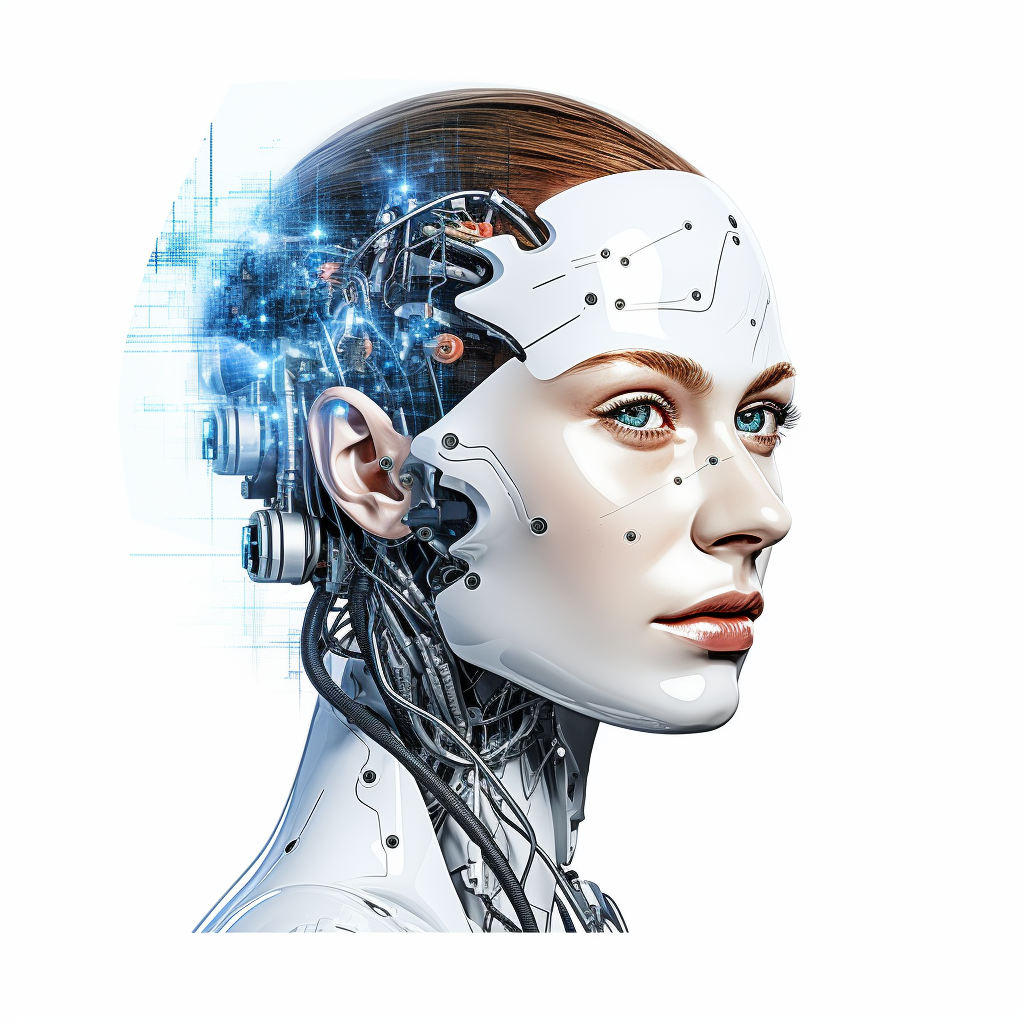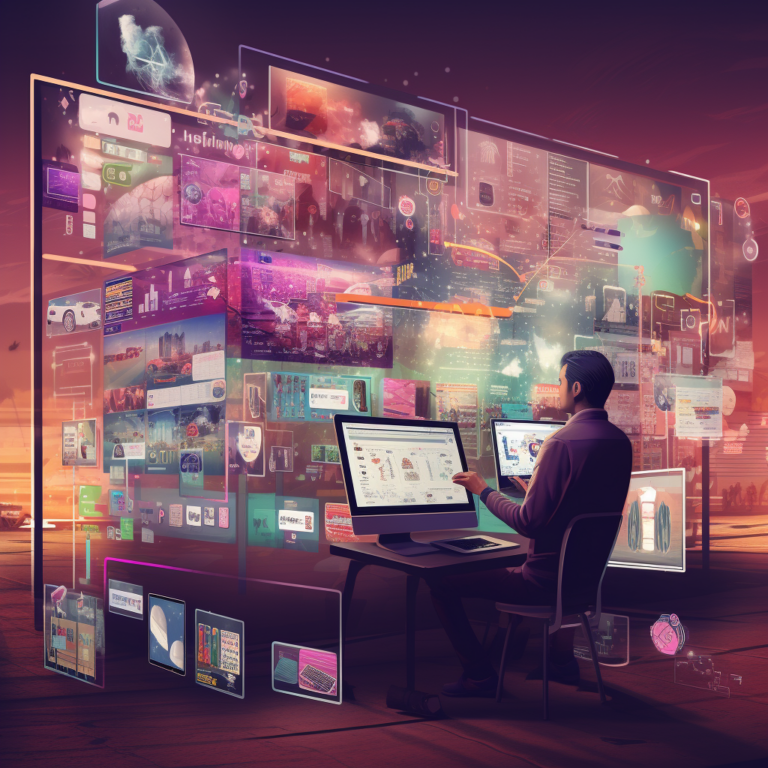How to Use AI To Make Money in 2024
Artificial Intelligence (AI) has rapidly evolved from a concept of science fiction to a transformative force across industries worldwide. Beyond its role in advancing technology, AI is increasingly becoming a cornerstone for entrepreneurial ventures, freelance opportunities, and innovative business models. In this article, we explore how individuals are harnessing AI to not only make a living today but also position themselves for a future where AI integration is expected to deepen.
Introduction to AI’s Impact on Entrepreneurship and Freelancing
The advent of AI has democratized access to sophisticated tools and technologies that were once exclusive to large corporations. Today, individuals and small businesses can leverage AI to automate tasks, personalize services, and enhance decision-making processes. This accessibility has paved the way for new economic opportunities, enabling people to carve out niche markets and create unique value propositions.
1. AI-driven Products and Services

One of the most prominent ways individuals are monetizing AI is through the development and sale of AI-driven products and services. This includes software applications, tools, and platforms that utilize AI algorithms for tasks such as natural language processing, image recognition, and predictive analytics. For instance, entrepreneurs are creating AI-powered chatbots for customer service, recommendation engines for e-commerce, and predictive models for financial forecasting.
Example: AI Chatbots
AI chatbots like those powered by ChatGPT are being integrated into websites to provide automated customer support, lead generation, and personalized user experiences. These chatbots leverage machine learning algorithms to understand and respond to user queries in real-time, reducing the need for human intervention and improving efficiency.
2. Consulting and Implementation Services

Consulting services focused on AI strategy, implementation, and optimization are in high demand as businesses seek to integrate AI into their operations effectively. Freelancers and consulting firms are offering expertise in areas such as AI project management, data strategy, and algorithm development. This niche market allows professionals to capitalize on their technical skills while guiding businesses through the complexities of AI adoption.
Example: AI Strategy Consulting
Consultants are assisting companies in formulating AI strategies aligned with their business objectives. This involves assessing organizational readiness, identifying AI opportunities, and developing roadmaps for implementation. By providing specialized knowledge and guidance, consultants enable businesses to harness AI’s potential for growth and innovation.
3. AI in Healthcare

AI is revolutionizing healthcare by enabling advancements in diagnostics, personalized medicine, and patient care. Entrepreneurs and healthcare professionals are leveraging AI to develop innovative solutions that improve medical outcomes and operational efficiency. Applications range from AI-powered diagnostic tools and virtual health assistants to predictive analytics for disease prevention.
Example: AI-Powered Diagnostics
Startups are developing AI algorithms capable of analyzing medical images, genetic data, and patient records to assist clinicians in diagnosing diseases accurately and efficiently. These AI-driven diagnostics enhance diagnostic accuracy, reduce healthcare costs, and improve patient outcomes by enabling early detection and personalized treatment plans.
4. AI in E-commerce and Marketing

E-commerce businesses and marketers are using AI to enhance customer engagement, optimize sales strategies, and personalize the shopping experience. AI tools are employed for tasks such as product recommendation engines, dynamic pricing, and targeted advertising campaigns based on predictive analytics and consumer behavior analysis.
Example: AI Product Recommendations
Online retailers are integrating AI algorithms to analyze customer preferences, browsing history, and purchase patterns to deliver personalized product recommendations. By leveraging machine learning models, e-commerce platforms enhance customer satisfaction and increase sales conversions by presenting relevant products to individual shoppers in real-time.
5. AI-driven Research and Development

Innovation-driven sectors such as pharmaceuticals, biotechnology, and materials science are leveraging AI to accelerate research and development (R&D) processes. AI algorithms are employed for drug discovery, predictive modeling, and simulation-based testing to expedite the development of new therapies, materials, and technologies.
Example: AI in Drug Discovery
Pharmaceutical companies are utilizing AI-powered algorithms to analyze vast datasets and identify potential drug candidates with therapeutic potential. By streamlining the drug discovery process, AI accelerates research timelines, reduces costs, and enhances the probability of success in bringing new treatments to market.
6. AI in Logistics and Supply Chain Management

Logistics and supply chain operations are benefiting from AI’s ability to optimize inventory management, route planning, and predictive maintenance. AI-powered solutions enhance operational efficiency, reduce transportation costs, and mitigate supply chain disruptions through real-time data analysis and decision-making.
Example: AI-driven Predictive Analytics
Logistics companies are deploying AI algorithms to analyze historical data, weather patterns, and market trends to predict demand fluctuations and optimize inventory levels. By leveraging predictive analytics, businesses optimize supply chain operations, minimize inventory holding costs, and improve delivery reliability to meet customer expectations.
7. AI in Customer Service

AI-driven customer service solutions, such as virtual assistants and chatbots, are transforming how businesses interact with customers. These AI applications provide instant responses to inquiries, automate ticket routing, and personalize customer interactions based on historical data and natural language processing capabilities.
Example: AI Virtual Assistants
Companies across various industries are adopting AI virtual assistants to handle customer queries, schedule appointments, and provide personalized recommendations. These virtual assistants improve customer satisfaction by delivering timely and accurate responses, reducing wait times, and enhancing overall service efficiency.
8. AI in Education

Educational institutions and e-learning platforms are leveraging AI to personalize learning experiences, automate administrative tasks, and improve educational outcomes. AI applications range from intelligent tutoring systems and personalized learning platforms to automated grading and assessment tools.
Example: AI-powered Tutoring Systems
AI tutoring systems utilize machine learning algorithms to adapt learning content and teaching methods based on individual student performance and preferences. By providing personalized feedback and support, AI enhances student engagement, accelerates learning progress, and improves educational outcomes in diverse subjects and disciplines.
9. AI in Real Estate

Real estate professionals are utilizing AI to streamline property valuation, market analysis, and customer relationship management. AI-powered tools facilitate data-driven decision-making, optimize property listings, and enhance customer experiences through virtual tours and personalized property recommendations.
Example: AI-driven Property Valuation
AI algorithms analyze real estate market trends, property characteristics, and comparable sales data to generate accurate property valuations and pricing recommendations. By leveraging AI insights, real estate agents and investors make informed decisions, negotiate effectively, and maximize return on investment in residential and commercial properties.
10. AI in Transportation

The transportation industry is embracing AI to develop autonomous vehicles, optimize route planning, and enhance vehicle performance through predictive maintenance and safety monitoring. AI-powered solutions improve operational efficiency, reduce transportation costs, and enhance passenger safety and experience in road, air, and maritime transport sectors.
Example: Autonomous Vehicles
Automotive manufacturers and tech companies are investing in AI-driven technologies to develop autonomous vehicles capable of navigating roads safely and efficiently. By integrating AI algorithms for real-time decision-making and sensor data interpretation, autonomous vehicles promise to revolutionize mobility, reduce traffic congestion, and improve transportation accessibility.
11. AI in Government

Government agencies are harnessing AI to improve public services, enhance policy-making processes, and optimize administrative operations. AI applications range from citizen services and regulatory compliance to predictive analytics for resource allocation and crisis management.
Example: AI-powered Public Services
Governments are deploying AI-powered chatbots and virtual assistants to automate citizen inquiries, provide information on public programs, and streamline service delivery. By leveraging AI technologies, governments enhance operational efficiency, increase transparency, and improve citizen engagement and satisfaction with public services.
The Future of AI-powered Entrepreneurship and Freelancing
The integration of AI into entrepreneurship and freelancing is reshaping traditional business models and creating new opportunities for innovation and growth. As AI technologies continue to evolve, individuals and small businesses have the potential to leverage these advancements to drive economic success, enhance productivity, and address complex challenges across industries.
By embracing AI-driven solutions, entrepreneurs and freelancers can position themselves at the forefront of technological innovation, capitalize on emerging market trends, and build sustainable businesses that thrive in the digital economy of the future.
References
- Smith, J. (2023). “The Impact of AI on Business Strategy.” Harvard Business Review.
- Jones, A. (2024). “AI in Healthcare: Transforming Diagnosis and Treatment.” Journal of Medical Technology.
- Lee, C. (2023). “AI-powered E-commerce: Personalizing the Customer Experience.” Journal of Business Analytics.
- Wang, L. (2024). “AI-driven Logistics: Optimizing Supply Chain Operations.” International Journal of Operations Management.
- Patel, R. (2023). “AI in Education: Enhancing Learning Experiences.” Educational Technology Review.
AI represents a transformative force that is revolutionizing how individuals approach entrepreneurship, freelancing, and career development. By understanding and harnessing the power of AI, individuals can create sustainable sources of income, drive innovation, and prepare themselves for the future economy driven by technological advancements.







